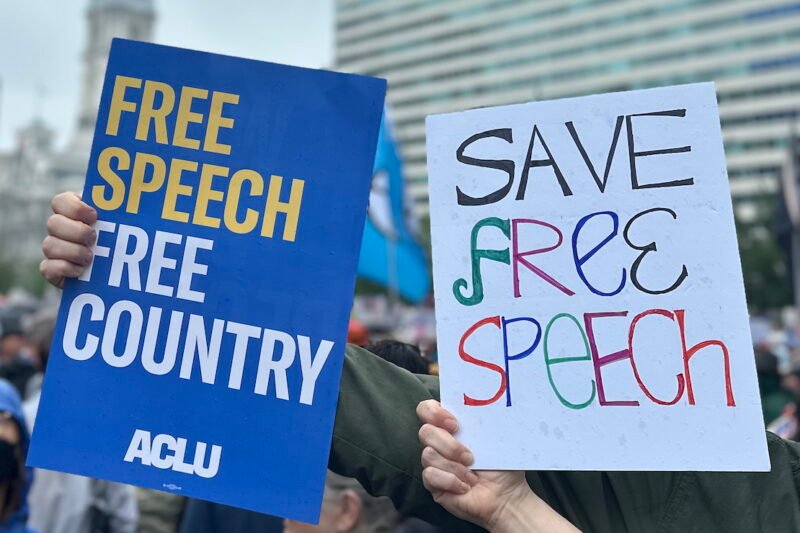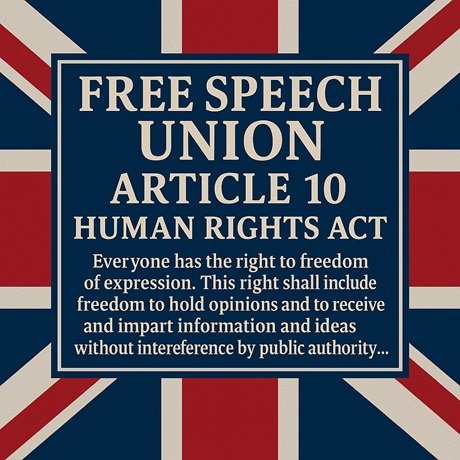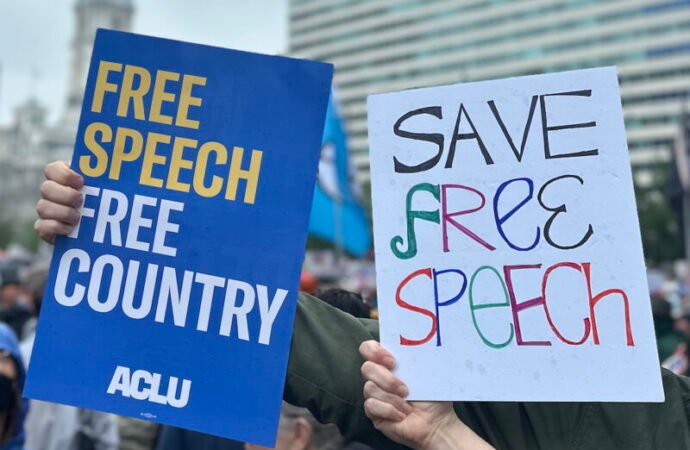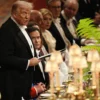A new NPR/PBS–Marist poll conducted in late September 2025 shows that 79 percent of Americans believe the United States has gone too far in restricting freedom of speech. That headline number, captured just days ago, sits on top of a swirl of legal fights, campus controversies, and political debates that have made “free speech” one
A new NPR/PBS–Marist poll conducted in late September 2025 shows that 79 percent of Americans believe the United States has gone too far in restricting freedom of speech. That headline number, captured just days ago, sits on top of a swirl of legal fights, campus controversies, and political debates that have made “free speech” one of the most charged phrases in American life.
Between September 22 and 26, 2025, Marist interviewed 1,477 adults across the United States by phone, text, and online. With a margin of error of plus or minus 3.1 percentage points, the poll found that nearly four out of five Americans think the U.S. has crossed the line in restricting free speech. Only 19 percent said the country has gone too far in expanding speech rights instead. When asked who should be the ultimate arbiter of what qualifies as “too extreme” or “beyond the pale,” a majority pointed to the Supreme Court. About 62 percent said the justices should be the ones to decide, while far fewer pointed to Congress or the President.
One of the most surprising details lies in the partisan breakdown. Democrats and independents were the most likely groups to say restrictions have gone too far. Nearly 88 percent of Democrats and 86 percent of independents expressed concern, compared with 64 percent of Republicans. In other words, unease is not confined to one side of the spectrum. This pattern hints at a complicated political reality. On one hand, progressives have sometimes supported tighter content rules online or on campus. On the other, recent episodes where government agencies or universities seemed to suppress or punish speech have made liberals and moderates especially sensitive to overreach. Republicans, long vocal about censorship by social media companies, are still in the mix but less dominant in this new poll.

Polls are snapshots of a moment, and this one lands after a series of high-profile events.
First, a federal judge in late September ruled that efforts to deport non-citizen student activists over their political views violated the First Amendment. That case sent shockwaves through both higher education and civil liberties circles, reinforcing the sense that the government had crossed into dangerous territory. Second, recent Supreme Court decisions have reshaped how online content is regulated, especially in cases involving age verification and platform liability. The Court signaled that it is willing to reconsider the government’s role in moderating speech in digital spaces. Third, universities across the country have faced mounting pressure around campus speech. Some have disinvited controversial speakers, others have tightened protest rules, and many faculty report that they now self-censor. These trends get wide attention in the press and fuel the perception that free expression is under siege. Finally, there is the ongoing battle over tech platform moderation. Companies like X, Meta, and TikTok constantly face criticism from both ends of the political spectrum: accused of suppressing certain voices, or alternatively, of not doing enough to police dangerous rhetoric. Americans see both risks, but what unites them is distrust of anyone government official or tech executive drawing the lines.
What the law actually says
The First Amendment sets a high bar for restricting speech. The government may not criminalize or punish expression except in a few narrow categories: obscenity, child pornography, incitement to imminent lawless action, defamation, fraud, and true threats. Most offensive, hateful, or unpopular speech is legally protected. Where things get complicated is when government action indirectly chills speech. A visa revocation, a public threat to regulate companies unless they censor content, or the quiet blacklisting of speakers may not always look like outright bans, but they raise serious constitutional and cultural concerns. This gray area is where much of the recent controversy lies.

Concerns about free speech have been building for years. Surveys by Pew, FIRE, and other groups have documented steady increases in self-censorship and worry about retaliation for expressing controversial opinions. Younger Americans often report feeling conflicted: they support inclusive environments but also value open discussion. What the Marist poll shows is that this concern has now spilled far beyond campuses and into the wider population, cutting across political and demographic lines.
The finding has consequences. For Congress, it means hearings and legislative proposals on free speech are likely to continue. For the courts, it reaffirms their central role, especially as most Americans want the Supreme Court to be the ultimate referee. For the White House and future presidential campaigns, it signals that defending free expression could be a winning message across party lines. Socially, the poll suggests that Americans feel chilled. When people fear punishment for their views, they withdraw from debate. That kind of self-censorship weakens the democratic process itself, where robust disagreement is meant to be the norm.
The near-term calendar is full. Several cases involving student protests and government pressure are moving through appeals courts. The Supreme Court is set to hear more disputes over online content moderation this term. And congressional committees are preparing bills that could reshape how platforms handle speech. At the same time, universities will face another academic year of protests, speakers, and policy controversies. Every one of these developments will feed public opinion, either validating fears of restriction or showing that institutions are willing to step back from the brink.
Seventy-nine percent is not just a statistic. It is a signal that Americans are feeling the weight of limits, whether from Washington, from universities, or from Silicon Valley. At its best, the United States has prided itself on being a nation of vigorous, often noisy debate. This poll is a reminder that citizens want that tradition safeguarded, not narrowed. The question for leaders in government, law, and culture is whether they will hear that warning and adjust or continue down a path that leaves nearly four out of five Americans feeling their voices are being stifled.

















Leave a Comment
Your email address will not be published. Required fields are marked with *